By Tom Demerly.
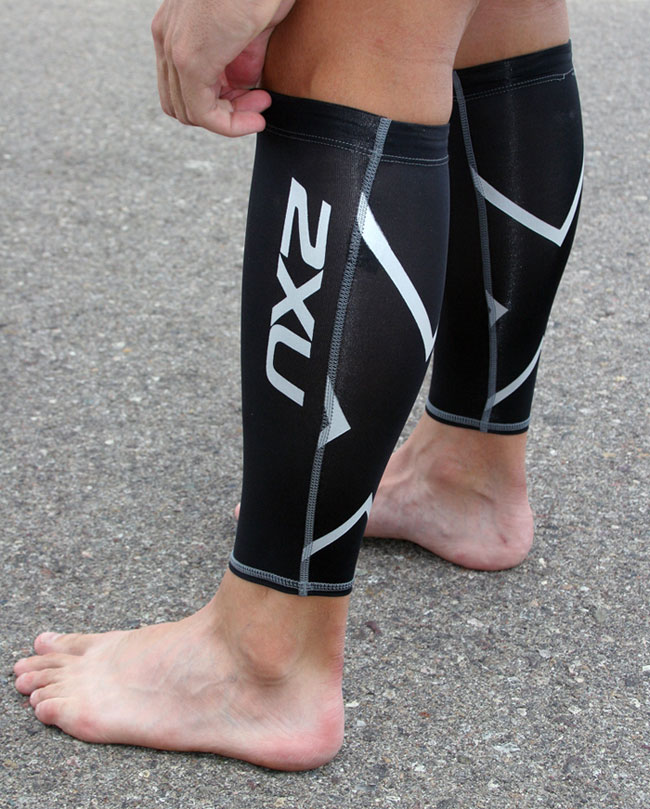
Compression garments: Do they “work”? What does “work” really mean? Is it a triathlon fashion fad?
I love equipment but I’m a cynic. I need proof that something like tight-fitting clothes provides a significant performance/recovery benefit. I’ve seen the studies and sat through the tech clinics. I wanted to experience the benefits of compression first hand- if they are real.
The brands that sell technical compression garments provide university medical studies that “prove” compression speeds recovery, improves circulation, reduces fatigue and improves proprioception (your sense of where your body is in space). What I set out to discover was: Does compression provide me- personally- the guy on the street, with any tangible benefit?
“Does compression provide me- personally- the guy on the street, with any benefit?”
2XU or “Two Times You” was founded in the sports mad city of Melbourne, Australia. The company and its name reflect their mission to advance human performance through their equipment- to literally give you “Two Times You(r)” capabilities.
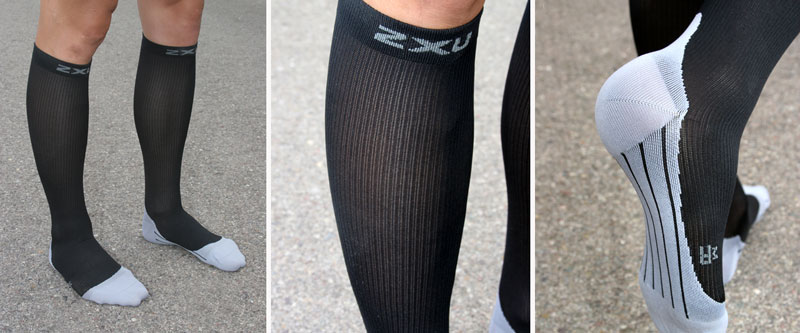
Last year Chris Sinkovich and Richard Verney of 2XU sensed my cynicism about compression. I dismissed the compression category as a great money maker, but a fad. The two bristled. An exchange of e-mails, visits and phone calls took place over the next few months until I finally told the guys from 2XU: “Guys, it’s a nicely made product- but I would need to experience any benefits for myself. “ I was finally off the hook. I thought.
Two days later a box and an e-mail showed up. Sinkovich and Verney of 2XU challenged me to disprove the university findings about the benefit of compression. It was on.
The claims about compression benefits are lofty:
- Increased circulation.
- Faster Recovery.
- Reduced fatigue
- Increased muscle compression reducing unwanted muscle oscillation
- Improved Proprioception.
- Temperature and moisture management.
For the 2012 season 2XU has introduced three levels of compression performance:
- 2XU PERFORM: The active/movement line. Compression for exercise to control muscle damage and provide full range of motion and proprioception in action/endurance sports and manage moisture and heat.
- 2XU XFORM: For active recovery. These garments use graduated compression to further enhance recovery while retaining the benefits of the Perform line.
- 2XU REFRESH: For recovery. Powerful and graduated compression to reduce inflammation and facilitate recovery through fluid return.
For my test I used the 2XU Men’s Recovery Compression Tights, the 2XU Compression Recovery Sock, the 2XU Swim Recovery Compression Top and the 2XU Compression Race Sock.
Testing physiological response to recovery garments is a slippery slope that delves into constants and trials, protocols and other rigmarole. That’s in the university studies published on 2XU’s website. My test would be a trial to see if I could find/feel/see a benefit. It’s not science, it’s anecdotal.
“I wanted to see if wearing compression made me feel any better”
In the short term I wanted to see if wearing compression made me feel any better and if there was a tangible difference using compression. The recovery claims were of particular interest. I decided to take two weeks off running after a hard two months, then resume running and use the compression to manage the residual soreness.
It’s hot in Tucson. A requirement of exercising here is constant hydration. I drink at least 3-4 liters of water per day, much more on days with a bike commute and a longer run. The water produces edema, or inflammation of the lower extremities. I’ve had this in deserts around the world, from the Sahara to the Wadi Rum in Jordan. Edema is a function of acclimating to exercise in the heat. It is a particular concern for athletes travelling to a race in a different climate, especially after a long flight. Here in Tucson it wasn’t difficult for me to induce some wicked edema and grow some epic cankles.
“…it wasn’t difficult to induce some wicked edema and grow some epic cankles.”
For my first run I banged out 5.5 miles on the River Trail behind my house, a perfect desert proving ground. Temperature was high 90’s with the monsoon season humidity building. That night, my legs ached. Experience told me in the morning they would be worse. I put one 2XU Compression Recovery Sock on my right foot. I put my normal shoes and boots on my left foot. The following afternoon this is what I got:
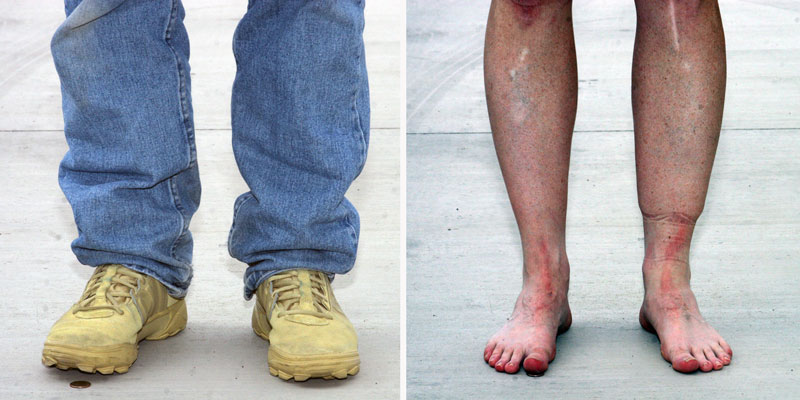
There was substantial inflammation in my left lower leg. The leg was larger in circumference and felt inflamed and “heavy”: The right leg below the knee, where the 2XU Compression Recovery Sock was, had less inflammation and was visibly smaller. I’ve had surgeries on both legs going back decades ago. The 2XU Compression Recovery Sock on the right leg prevented the edema and inflammation I had on the left leg.
“Nearly all of the inflammation from my left leg had gone down overnight while wearing the 2XU recovery tights.”
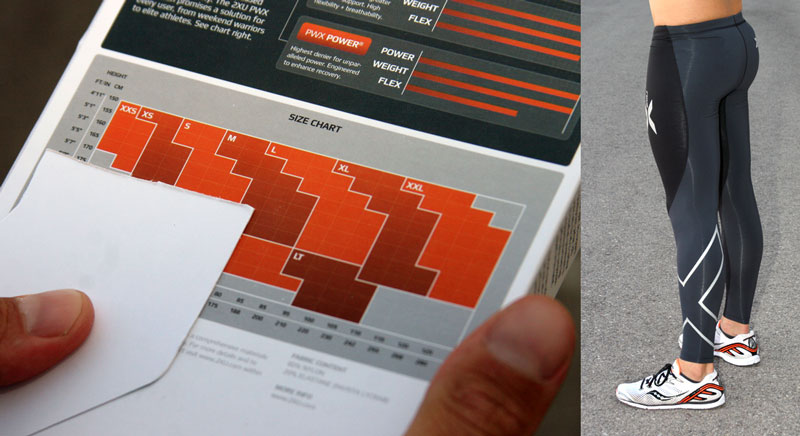
Next step was to use recovery while sleeping. I wore the 2XU Men’s Recovery Compression Tights while sleeping after verifying my fit on the packaging size chart. I found the 2XU size charts on their packaging to be accurate. Nearly all of the inflammation from my left leg had gone down overnight. My legs were sore, but it was more joint pain than muscle pain. The level of muscle discomfort compared to using no compression and coming back to running was lower.

Finally, the following morning I got up, drank a liter of cold water, changed into the 2XU Compression Race Sock and did my long commute to work; 19.5 miles around Davis-Monthan AFB. I. I rode hard in rising temperatures already above 85 degrees. At work I racked my bike, took my shoes off, shot one photo in the 2XU Compression Race Sock, pulled the socks off, and stepped in front of the camera again. Less than 24 hours after the “cankle” photo this is how my legs looked:
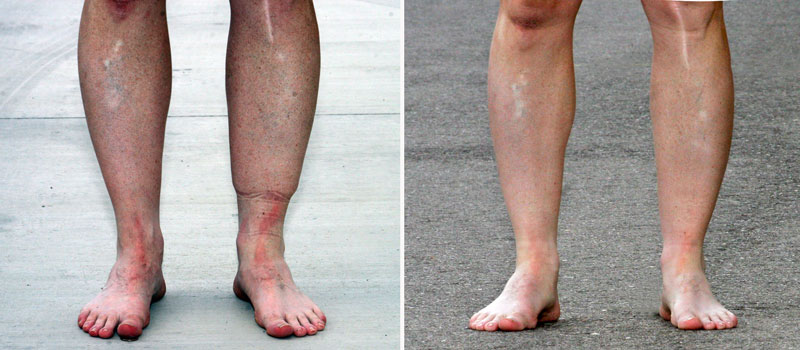
“…compression does provide a reduction of soreness and inflammation for me.”
My take-away is that compression does provide a tangible benefit in reduction of soreness and inflammation for me. The results feel more significant than any other recovery product I’ve used, including anti-inflammatories, aspirin and (unfortunately) even massage.

In retrospect I think Verney and Sinkovich knew they were shooting fish in a barrel with this project. I was an easy target because compression has easily verifiable benefits. In my role as a product review editor I see a lot of products that promise but don’t deliver. Three (other products) are in my cubicle right now. You never read about those because we don’t buy them, don’t publish the review. Verney and Sinkovich proved to me that 2XU Compression does provide a verifiable benefit to me, or perhaps I proved it to myself. In both cases my paradigm about compression as being trendy and fashionable among last-decade triathletes has been aptly shifted. For me, 2XU Compression provides tangible benefits
